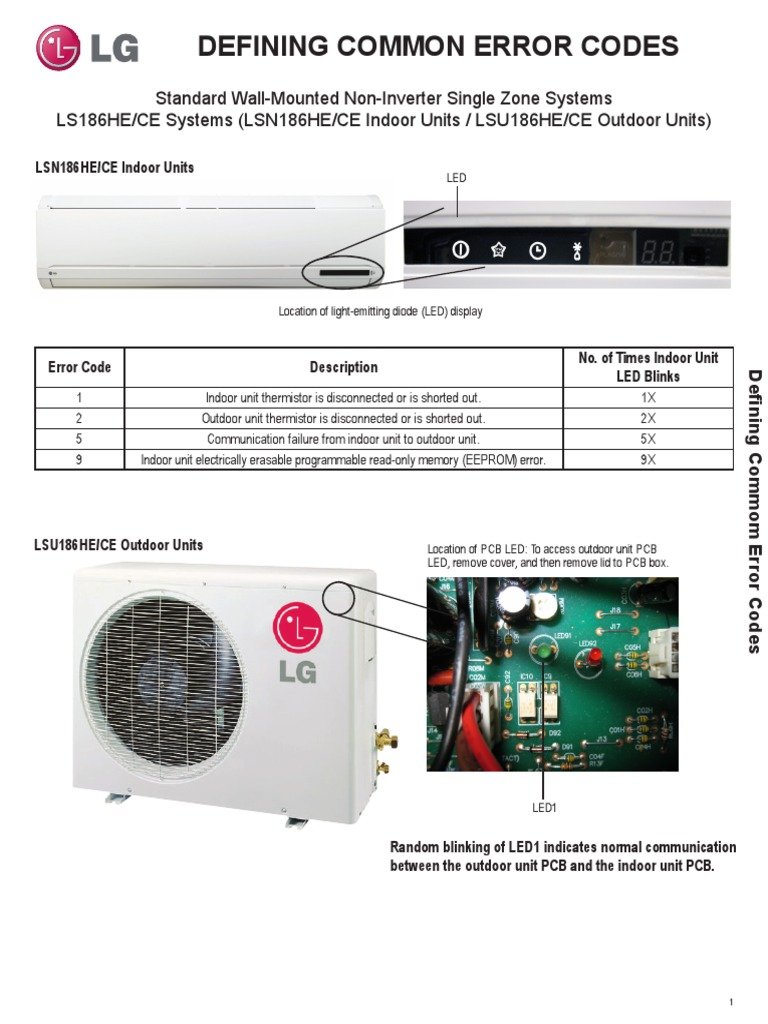
You might be thinking, “But my air conditioner’s main job is cooling, so why worry about heating?” Well, here’s the thing: many modern air conditioning units, especially in LG’s lineup, come with both heating and cooling functions. So, when your unit displays an “HE” error, it’s essentially telling you there’s a problem with the heating mechanism. It’s like when your favorite coffee machine suddenly starts making lukewarm coffee instead of piping hot. You still get coffee, but something’s off and needs attention. So, let’s dig deeper into what might be causing this error and how you can go about fixing it.
Understanding the Function of the Heat Exchanger
Before diving into the possible causes of the “HE” error, it’s important to understand what the heat exchanger does. Think of it as the heart of your air conditioner’s heating function. Its job is to transfer heat between the inside of your room and the outside environment. Imagine it as a bridge that swaps warm air for cool air (or vice versa, depending on whether you’re heating or cooling). So, when there’s an issue in this component, it’s like a traffic jam on this bridge, preventing the proper transfer of heat.
Heat exchangers work by using refrigerant, a special liquid that circulates through the air conditioning system. As the name suggests, it’s key to exchanging heat inside and outside your home. If this component is not functioning properly, it can lead to the “HE” error. This is similar to how a car’s engine might overheat if the radiator isn’t working well. If the heat exchanger can’t do its job, your air conditioner can’t provide the right level of heating.
When a heat exchanger fails, it often results in inadequate heating or even air circulation issues. It might start with just a little less warmth than usual, and then you might notice it’s not heating at all. It’s crucial to catch these signs early to prevent further damage. The good news is, regular maintenance and simple checks can often keep your heat exchanger and entire air conditioning system running smoothly.
Common Causes of Error Code HE
Let’s explore some typical culprits behind the “HE” error. First and foremost, a dirty or blocked filter is a frequent offender. Much like how an oil filter keeps a car engine running smoothly, an air conditioner filter keeps dust and debris from clogging the system. If it’s dirty, airflow is restricted, causing the system to overheat or function inefficiently.
Another common cause is a faulty temperature sensor. Think of this sensor as your unit’s thermostat, which reads the room’s temperature and lets the system know when to heat up or cool down. If it’s malfunctioning, it might misinform the system, leading to an incorrect operation and triggering the “HE” code. It’s a bit like when you put your hand on a room thermostat only to find it’s set to the wrong temperature, causing the system to react incorrectly.
The wiring inside your unit might also be an issue. If there’s a loose connection or damaged cable, it can disrupt the flow of electricity needed for heating, causing the unit to throw an error code. It’s similar to how a frayed power cord might prevent your phone from charging correctly. To tackle these issues efficiently, regular inspections and maintenance are key.
Steps to Resolve the Error Code HE
So, how do you go about solving the “HE” error? Well, start with the basics. Check the air filter. It might seem trivial, but often, cleaning or replacing a dirty filter can immediately resolve many performance issues. If you haven’t cleaned it in a while, now might be a good time. It’s as simple as washing dishes. The cleaner the plates, the better your meal looks and tastes—a clean filter leads to a happier and more effective air conditioner.
Next, inspect the temperature sensor. While this isn’t a fix you can always do yourself—often requiring a professional—you can at least ensure it’s not being obstructed by dust or debris. Think of it as the air conditioner’s eyes; keeping them clear ensures it sees the room’s needs accurately. If it seems faulty, consulting an expert is a wise move.
Finally, inspect for any loose or damaged wiring. This could be a little tricky and might require professional assistance if you’re not too handy. Electricity can be dangerous if you’re not sure what you’re doing, so it’s better to be safe than sorry. By keeping all these components in check, you ensure that your air conditioner runs smoothly and efficiently.
Preventative Tips for Avoiding Future Errors
Preventing the “HE” error and other issues is mostly about regular care and attention. Just like getting regular check-ups for your car or annual health screenings, your air conditioner needs some TLC to work optimally. Cleaning the filter at least once a month, especially during heavy usage seasons, ensures that dust and debris don’t accumulate.
Scheduling professional maintenance at least once a year is another excellent way to prevent errors. A trained technician can spot issues early on, often before you even notice them. It’s like having a coach who helps keep your fitness on track. They identify areas of improvement and help you maintain peak performance.
Lastly, always follow the manufacturer’s guidelines when it comes to operation and care. Proper usage not only enhances the lifespan of your unit but also minimizes the likelihood of errors cropping up. So, give it the care it needs, and it’ll keep you comfortable, whether warming up your room on a chilly day or keeping it cool during a heatwave.